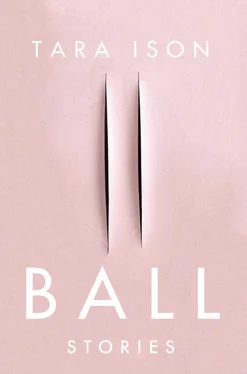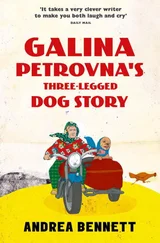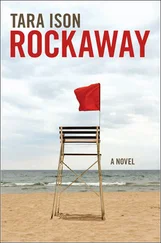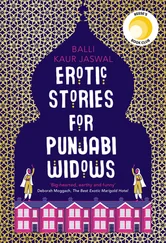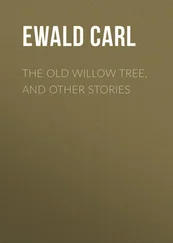Tara Ison - Ball - Stories
Здесь есть возможность читать онлайн «Tara Ison - Ball - Stories» весь текст электронной книги совершенно бесплатно (целиком полную версию без сокращений). В некоторых случаях можно слушать аудио, скачать через торрент в формате fb2 и присутствует краткое содержание. Год выпуска: 2015, Издательство: Soft Skull Press, Жанр: Современная проза, на английском языке. Описание произведения, (предисловие) а так же отзывы посетителей доступны на портале библиотеки ЛибКат.
- Название:Ball: Stories
- Автор:
- Издательство:Soft Skull Press
- Жанр:
- Год:2015
- ISBN:нет данных
- Рейтинг книги:3 / 5. Голосов: 1
-
Избранное:Добавить в избранное
- Отзывы:
-
Ваша оценка:
- 60
- 1
- 2
- 3
- 4
- 5
Ball: Stories: краткое содержание, описание и аннотация
Предлагаем к чтению аннотацию, описание, краткое содержание или предисловие (зависит от того, что написал сам автор книги «Ball: Stories»). Если вы не нашли необходимую информацию о книге — напишите в комментариях, мы постараемся отыскать её.
Rockaway
A Child Out of Alcatraz
Reeling through Life
Ball With a keen insight into the edges of human behavior and an assured literary hand,
is the new book by one of the West’s most provocative stylists.
Ball: Stories — читать онлайн бесплатно полную книгу (весь текст) целиком
Ниже представлен текст книги, разбитый по страницам. Система сохранения места последней прочитанной страницы, позволяет с удобством читать онлайн бесплатно книгу «Ball: Stories», без необходимости каждый раз заново искать на чём Вы остановились. Поставьте закладку, и сможете в любой момент перейти на страницу, на которой закончили чтение.
Интервал:
Закладка:
Tara Ison
Ball: Stories
for Theda
CACTUS
I haven’t left the apartment in nine months. My current boyfriend, Paul, has tried. He’s tried to lure me outside with tickets to the Hollywood Bowl or the Greek, lobster dinners on the Santa Monica Pier, a drive to the outlet mall in Camarillo for shoes. He combs LA Weekly in search of compelling events. He seeks to entice me with unmuggy, azure-skied days, with dove-gray rain days, with his twilight-walk-on-the-beach idea of romance. He brought me a kite, a neon-lime rhombus with an optimistic mile of spooled nylon string, and proposed Laguna Beach. He bought me a pair of rollerblades, then he bought me a Jet Ski. Actually, his parents bought it, for both of us. But his parents have always liked me. Paul thinks going outside will be good for me, scrub off dull cells of skin, freshen my blood, inspire bloom. You need some sun, he says hopefully, light and fresh air. A change of atmosphere. You’re pale. You need to go outside. He talks about the necessary vitamin D absorption from ultraviolet rays. He cajoles, pleads, pouts, but in the end I give him shopping lists, and he comes back with everything I’ve asked for.
I don’t need to go outside. My computer is right there on my desk, and my work, mail, contact, come to me. Light and sky, a vertical swatch of the Hollywood Hills, all find me through the faux-bay window in the living room. I can plant myself safely in the window seat I rigged up and look out, see pavement, Laurel Avenue, cars, the street cleaner on Tuesday mornings, a sleeping ceramic child and the ugly, treacherous, stolen cactus in our small plot of front yard. Paul has refused to water the cactus, thinking that will get me to rise, but I remind him: It’s a cactus . Go on, withhold water. It’ll just mock us. It’ll outlive us both. Just try to master it, and, more likely, you’ll be the one to get hurt.
This cactus stabbed me once, so I know what I’m talking about.
JOSH, MY FORMERboyfriend, dug the cactus out of the ground in front of me on our only trip to the Mojave Desert. He had a job leading overnight hiking excursions for junior high and high school kids. He had a stock of whistles and white cotton French Foreign Legion — style caps. He’d drive a herd of bored, sweating students out to places like Death Valley, Anza-Borrego, Indian Canyon, in a renovated bus donated by the L.A. City School District, and explain how crashing tectonic plates thrust up the mountains and granite shafts, how melting glaciers once filled the basins with lakes, about global warming patterns and elevation and evolving ecosystems, how the water burrowed itself deeper underground as if looking to hide while harsh, parching winds swept soil into dunes. He showed them bedrock worn down and exposed like picked-clean bones. He taught them about the Pleistocene Pinto people, and the Serrano Indians who lived on pinyon nuts, cactus fruit, and mesquite beans, wove sandals and baskets from the shredded, curly fibers of Mojave yucca, and left behind their pottery and rock paintings. He explained how explorers a hundred years ago dammed up the last trickles of water, plundered the desert for gold, and left a honeycomb of mines. He pointed out arroyos, playas, and alluvial fans baked down to dust, the stump of a basalt volcano, aplite and gneiss glinting in the sun. At dusk he showed them emerging kangaroo rats and desert iguanas and burrowing owls, explained how roadrunners get all the moisture they need from the bodily fluids of reptiles, insects, and rodents they eat, taught them how every desert animal has adapted in body shape or metabolism or special skill to hang on to its place as predator or prey. At night he and his students would all lie in their mummy bags under the black celestial dome, undimmed by any fake municipal glow, and watch the elliptic path of the planets, the zodiacal chase of stars. It’s the vastness of it all, he would always tell them, me, sounding drug-fried or stupid, neither of which he is. His favorite word, vast —vast desert, landscape, atmosphere, universe, space. Earth: a core of rock, a crumbled mantle, a thin forsaken crust, and a mere us between it and the vast and boundless sky. He said it was the vastness that got to them every time, what they succumbed to, the letting go of small things, but I know what got to them was him. I pictured the cynical, trooping teenagers rolling their eyes, elbowing each other, then finally cracking smiles. I pictured them losing their cool urban sheaths and succumbing to his desert varnish, his energized mirage, his pulse. Succumbing to this oasis of a person. He said it was the vastness that got to them, but I know that’s what got to him , rooted him, somehow made him feel peace. I didn’t get it. All that quiet just sounded lonely to me. The idea of succumbing to all that space made me feel aimless and lost. I could never understand why he’d want to feel so insignificant.
I USED TOwatch him pack for his trips. He’d squeeze one spare everything into a small duffel bag and reel off the desert’s vast beauties he couldn’t wait to get back to, while in my head I listed ways he might get hurt. A blistering third-degree burn, despite the sunblock. Heatstroke, despite the cap. The skull-splitting fall from a rock. A flash flood while he slept. In my mind he’d go to retrieve a student who’d wandered into a forbidden, abandoned mine, only to have it collapse on top of him in a thundering billow of rock. He always packed a topographic map and compass, but I suspected he’d get lost one day in the pirouetting cactus — boulder — cow skull, cactus — boulder — cow-skull backdrop of the cartoon Southwest. I’d watch him load the bus with plastic five-gallon barrels of water— I want you guys guzzling two gallons per person per day, I’d hear him warn students on the phone in his teacher’s voice, you gotta replace that sweat! — and think: evaporation, dehydration. I pictured him desperately sucking a chunk of cactus. I pictured him writhing with heat cramp. He always packed a shovel, in case the bus got mired in sand, and I’d picture a fresh-dug desert grave, his body wrapped in the shiny green Hefty bags he took along for trash and already melting into his skin in the sun. He had a cooler the size of a steamer trunk packed with food and bricks of ice, and I’d think: starvation, botulism. The first aid kit didn’t reassure me; it confirmed my fears. There were desert tarantulas and desert snakes, and I’d watch him sharpen his jackknife and scissors and imagine him coming back in a limp, drained stagger, his body marked with a cross where some student had X’d over a fanged puncture to suck out and spit the poison from his blood. Every time he came home, a mere him, hair burned a lighter blond, his fruit-leather skin covered in a gritty sweat and his nape bright as tomato from having loaned his neck-flap cap to a student too arrogant to bring his own, I’d busy myself with a special dinner, something cool with mint and cucumber, draw him a tepid bath, bustle and fuss all to avoid a hysteric relief at having him return okay. Each time he came back unhurt I stockpiled the fear, carried it over to the next time, weighed the increase of odds that meant nothing bad had happened yet and so next time, of course, it would.
When we were first together, he’d always asked me to go along. When we were first together I wasn’t scared at all, and I always shrugged and said No, I don’t feel like it, I’m not much of an outdoors person, You go, we’re not joined at the hip, You go, we’re going to grow old together, right? plenty of time, You go, we don’t have to do everything together, we don’t have to share all the same interests, right?
Читать дальшеИнтервал:
Закладка:
Похожие книги на «Ball: Stories»
Представляем Вашему вниманию похожие книги на «Ball: Stories» списком для выбора. Мы отобрали схожую по названию и смыслу литературу в надежде предоставить читателям больше вариантов отыскать новые, интересные, ещё непрочитанные произведения.
Обсуждение, отзывы о книге «Ball: Stories» и просто собственные мнения читателей. Оставьте ваши комментарии, напишите, что Вы думаете о произведении, его смысле или главных героях. Укажите что конкретно понравилось, а что нет, и почему Вы так считаете.
